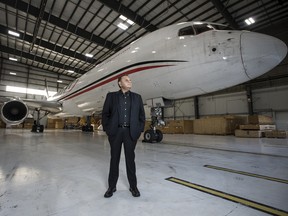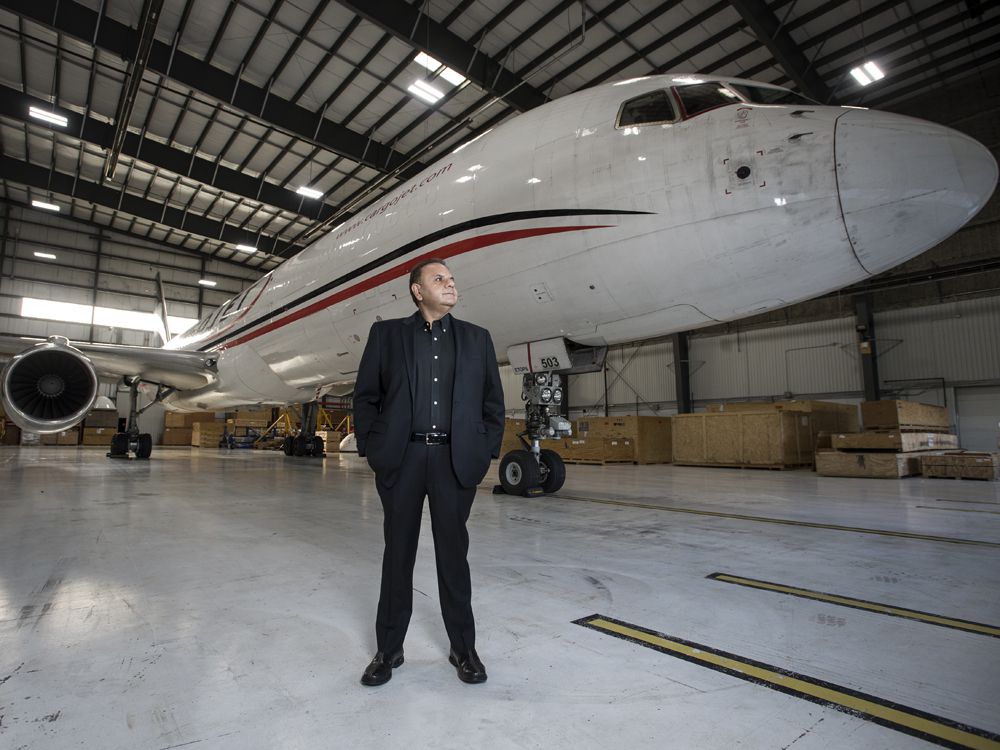2022 ‘very different picture’ for freight carrier

Article content
Cargojet Inc. chief executive Ajay Virmani said fuel prices and labour challenges suggest a recession is looming.
Advertisement 2
Article content
“All the challenges that you see out there [are] pointing towards almost a recessionary economy,” he said in an interview with the Financial Post’s Larysa Harapyn.
Virmani has a unique sightline on what’s happening in the economy. Cargojet had a good crisis, as the Mississauga, Ont.-based airline tripled its loads as consumers started ordering goods for delivery that they typically would have purchased at a store. Year-over-year revenue growth increased by 46 per cent in the quarter ended March 31, rising to $233.6 million from $160.3 million in the first quarter of last year.
Despite beating earnings expectations, Virmani said that business has levelled off since 2021. “That was a bit of a different story,” he said. “Today, it’s a very different picture.”
Advertisement 3
Article content
The once-fluid supply chain has faced numerous disruptions, including blockades, floods, and shortages. The chaos of the past couple of years has generated debate about whether supply chains will be shortened, as manufacturers and retailers seek suppliers closer to home to reduce the risk of being left with empty storerooms in the future.
Virmani said he isn’t seeing that yet. But he is seeing firsthand the extreme labour shortages that have come with the recovery from the COVID recession.
“Our biggest challenge right now is making sure that we can have people on the ground,” said Virmani. ”Inflation is a big factor, especially when you have wage rates go up 20 to 30 per cent to find any decent people to work.”
Canada’s inflation rate hit a new 31-year high of 6.8 per cent in April from a year earlier. Wages have also jumped as firms try to retain staff in the country’s tight job market.
Advertisement 4
Article content
“Everybody’s increasing prices,” said Virmani. Examples of recent price hikes in the airline industry include airport landing and parking fees, NAV Canada navigation charges, and jet fuel prices.
Passing on inflationary costs has been tricky for Cargojet because many of its customers have locked-in contracts.
“You’re not able to pass on 100 per cent of those charges,” said Virmani. ”It’s kind of hard to jam through every area of increase to your customers because there’s no ability for them to pass [it] on either,” said Virmani.”
Cargojet has been branching out into the international market as part of its growth strategy in the post-pandemic world.
“I’ve always said that Cargojet needs to diversify,” said Virmani. “We have the infrastructure in place, we have the resources in place, so basically we had to get some planes and people to fly them.”
Advertisement 5
Article content
The airline used to be primarily domestic – 80 to 90 per cent of its business, Virmani said – when it launched in 2001. Its business has since evolved, and domestic orders now account for only 50 per cent of business, the CEO said.
-

DHL strikes deal to buy up to 9.5% stake in Cargojet
-

Cargojet threatens to shift work from Canada to U.S. over pilot fatigue rules
“It’s like McDonalds. They used to serve you lunch and dinner and they added breakfast to their menu,” said Virmani. “We have added sort of our version of breakfast which is international to the menu.”
Air Canada recently expanded its fleet with the acquisition of new freighter aircrafts. But Virmani said it has done little to change the playing field for Cargojet.
Advertisement 6
Article content
“International is a big market,” he said. “We’ve got a business plan and we’re going to execute it.”
At home, Virmani said Cargojet is shielded from Air Canada and other competitors because few have been in the business for as long as he has. Cargojet has taken over 20 years to build its network in the Canadian market, and that has value, the CEO said.
“There’s a cargo pedigree. There’s a cargo system in place. Minutes matter and I don’t think that anybody who wants to expand in that market field will have great luck,” said Virmani. “You have got to spend a lot of money, or you have got to spend a lot of time on it – and we’ve done both.”
• Email: novid@postmedia.com


